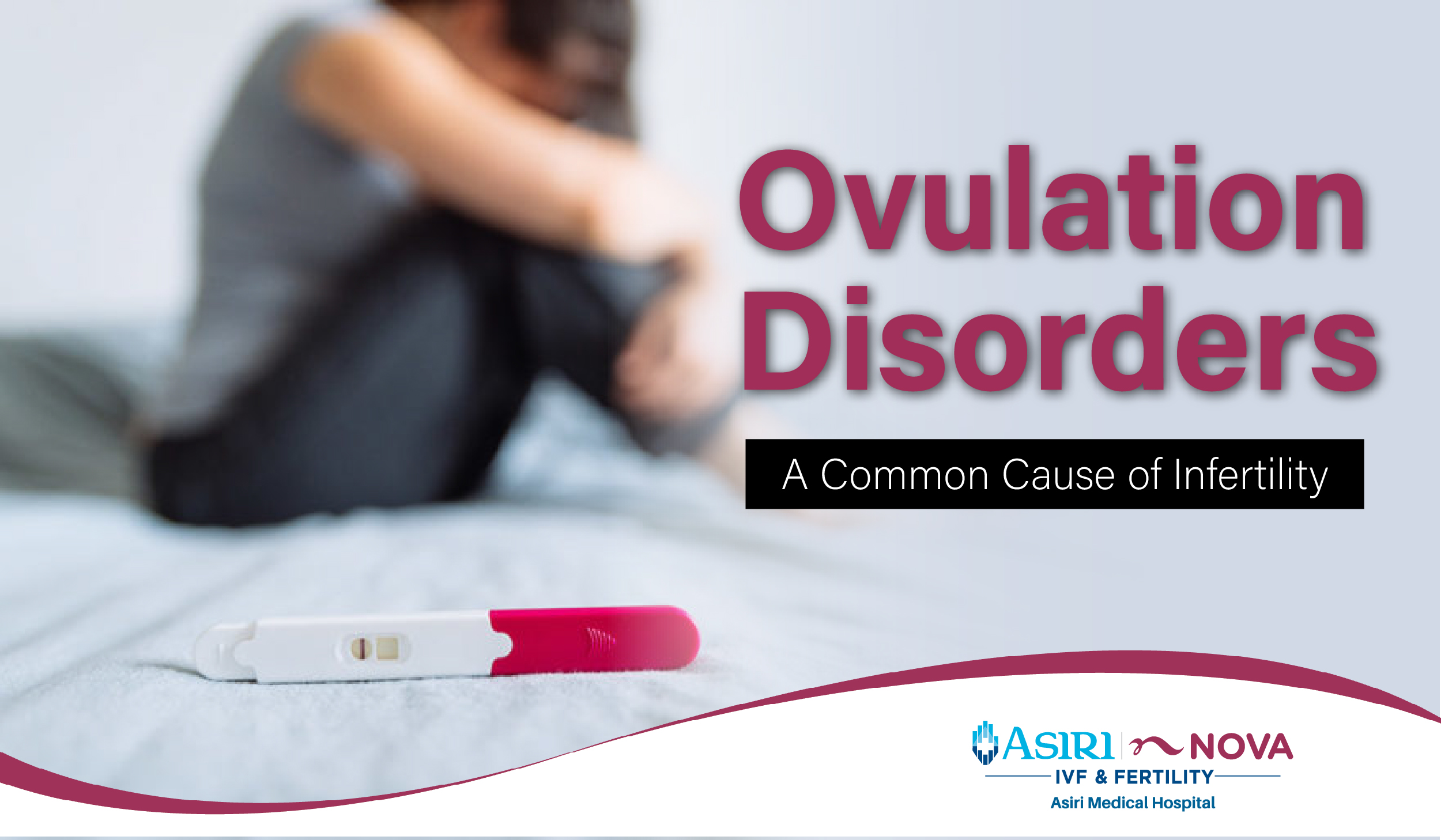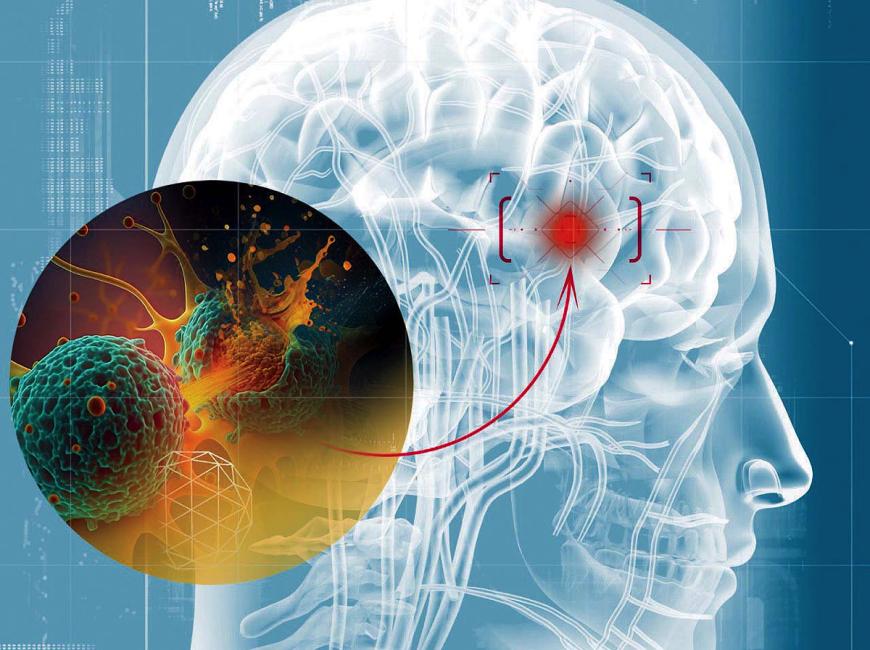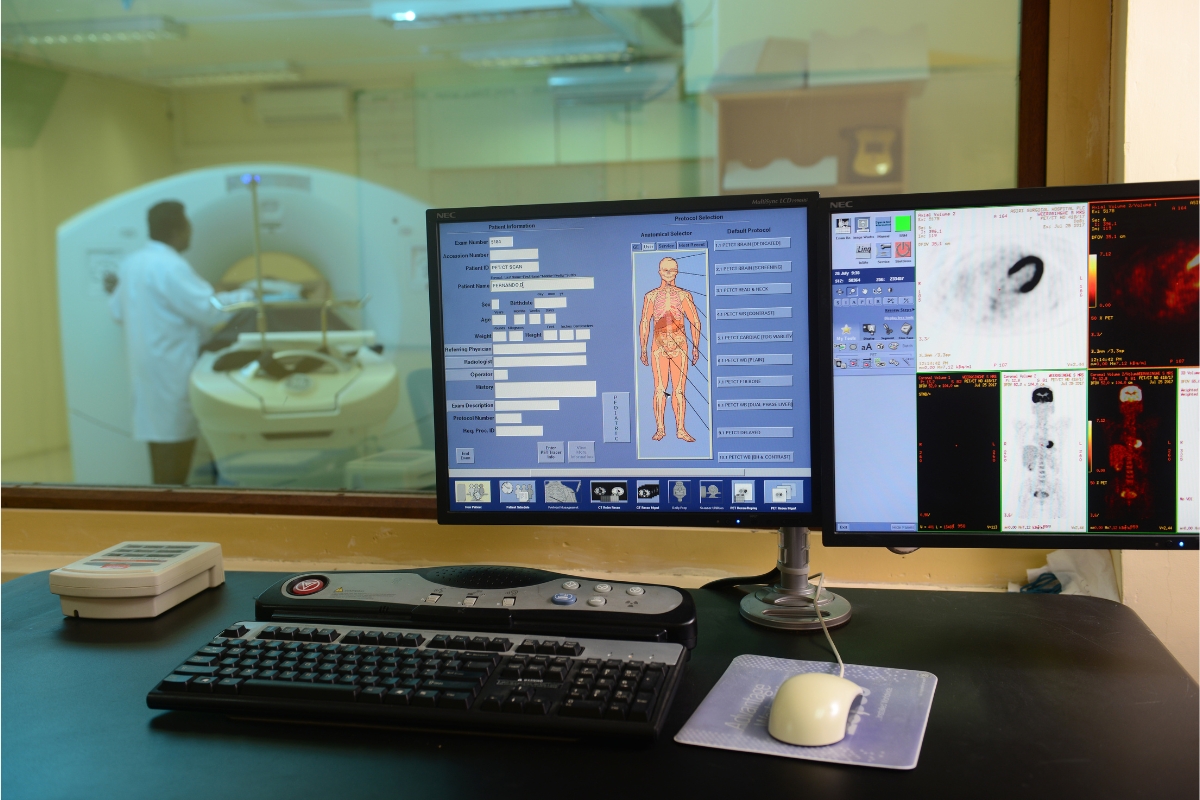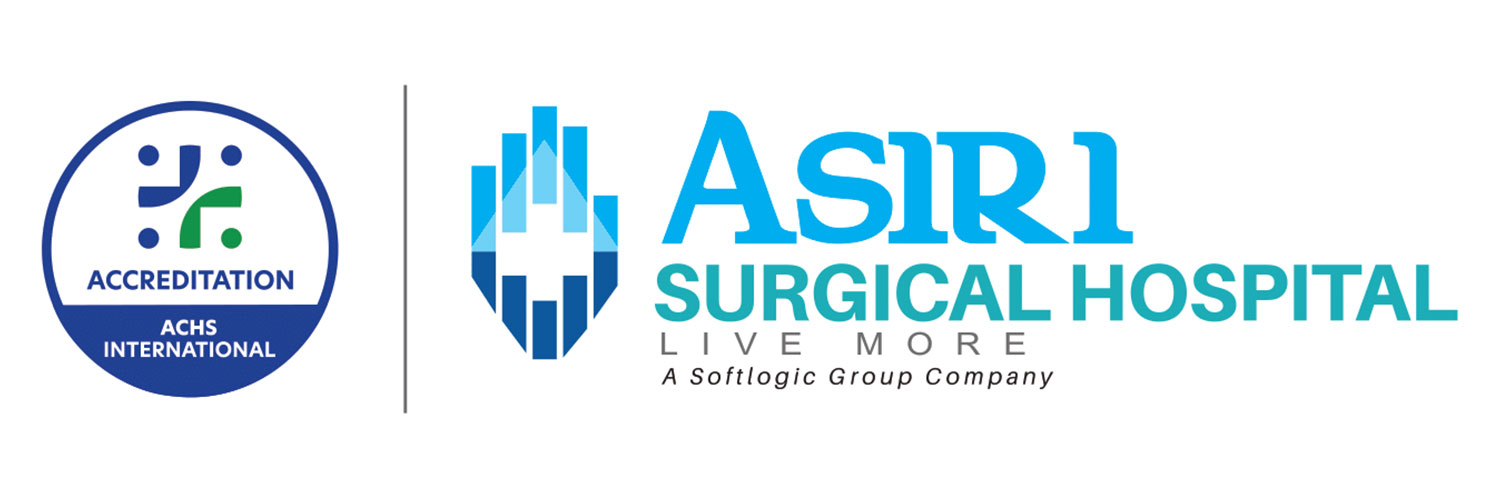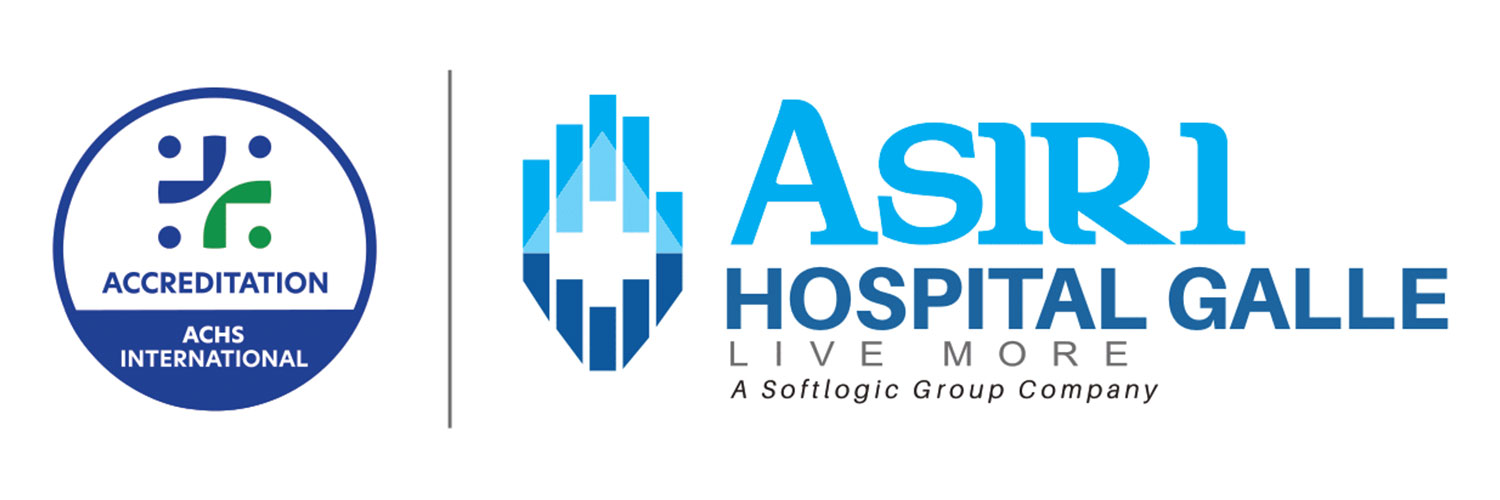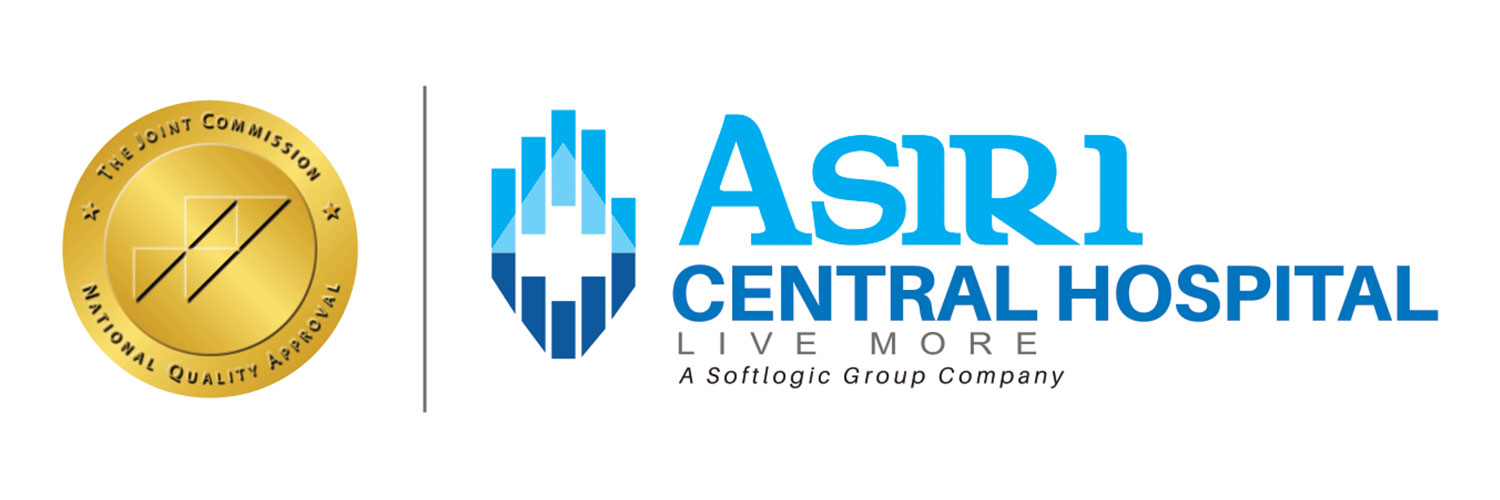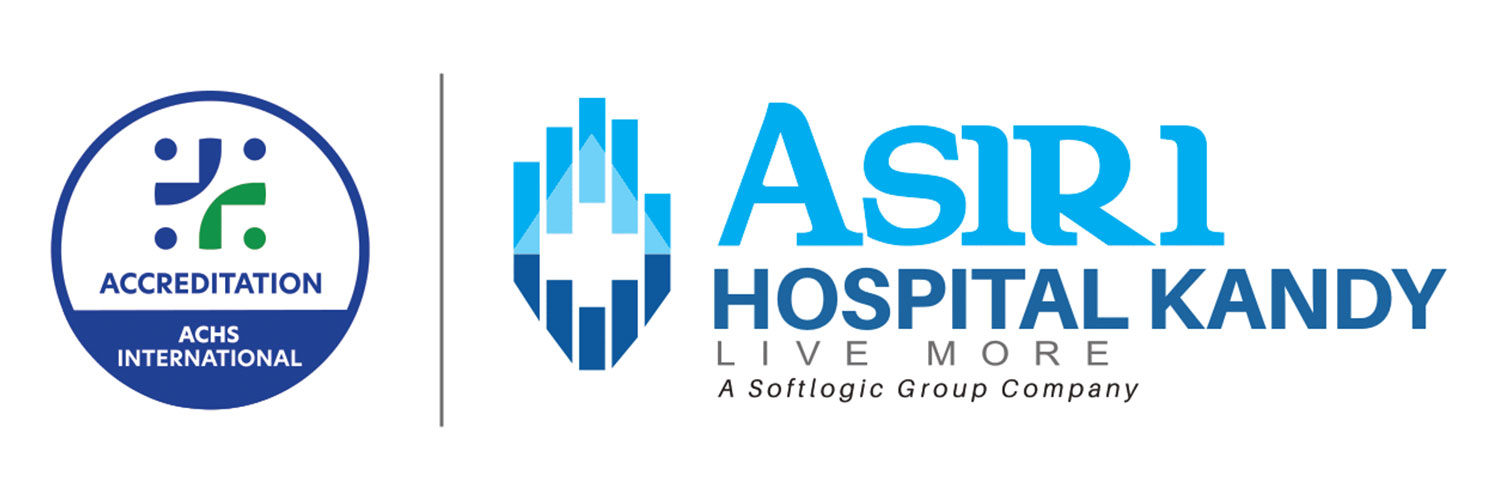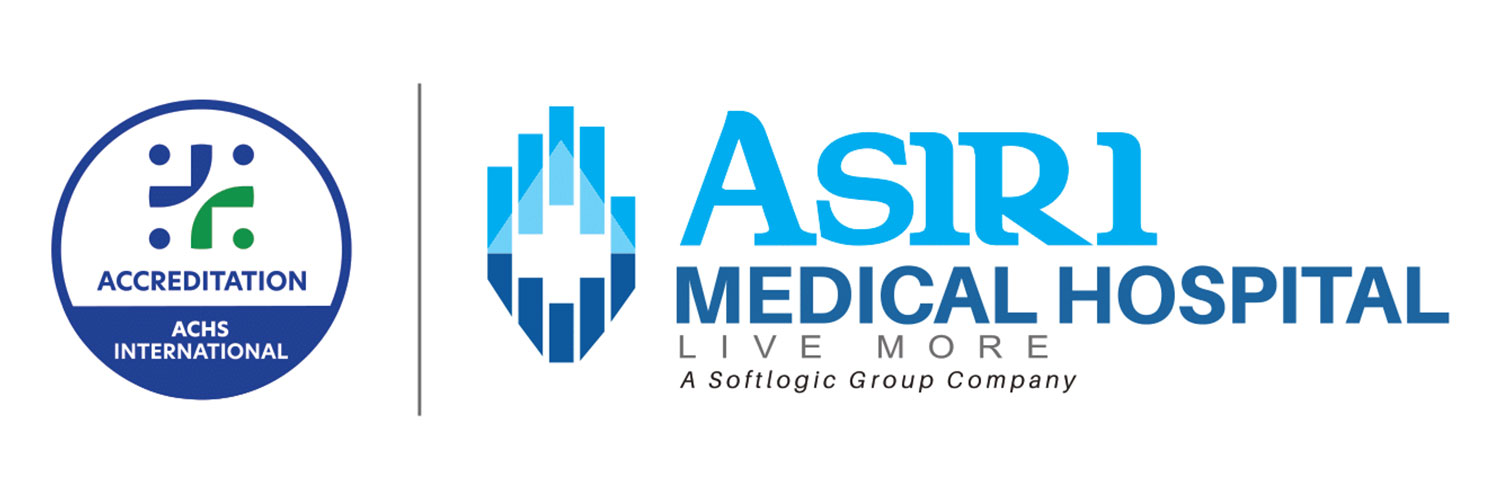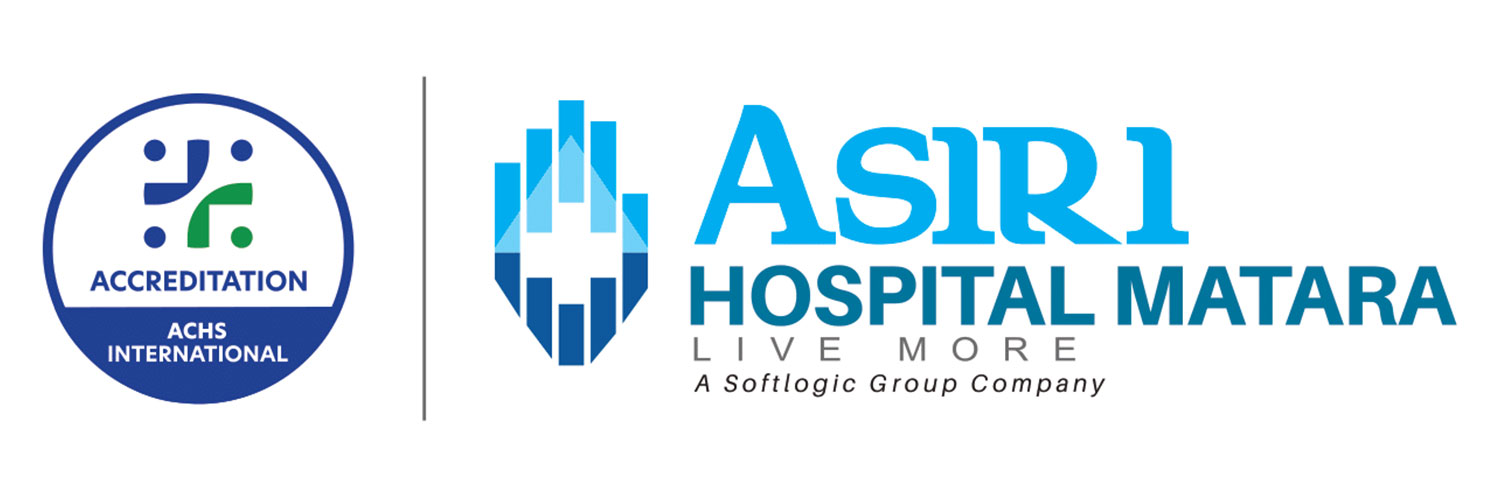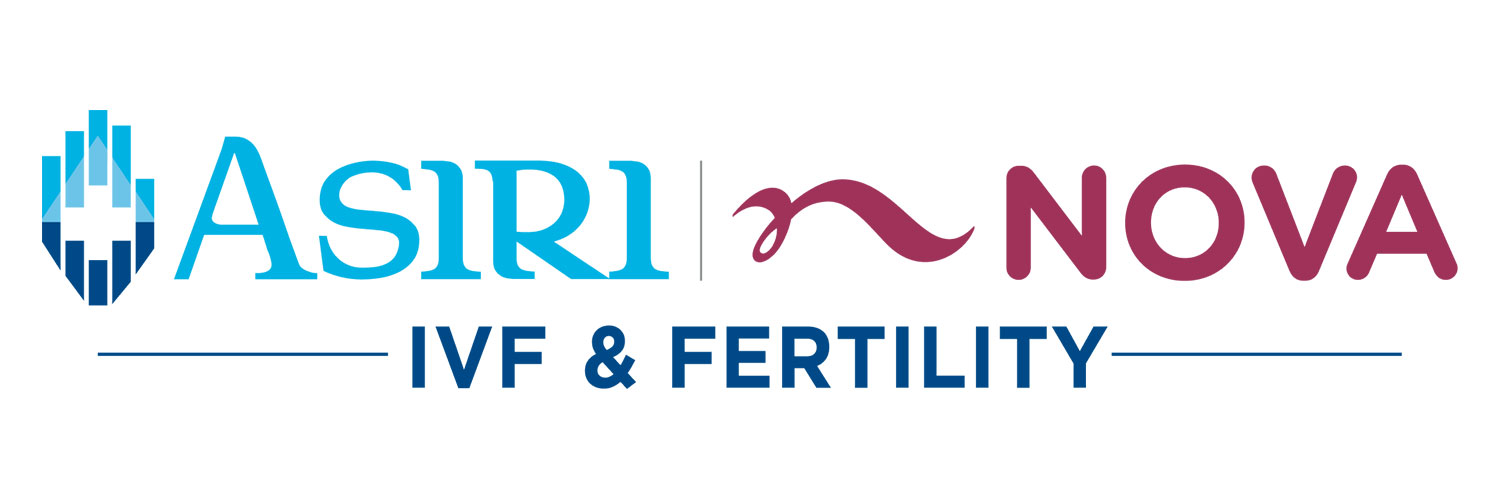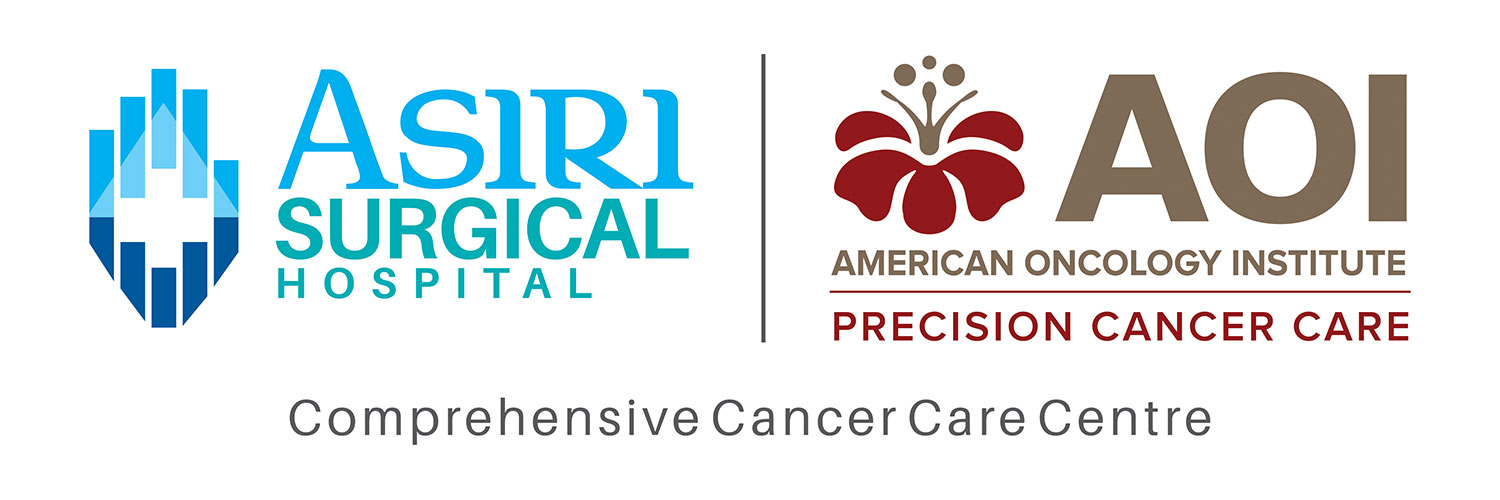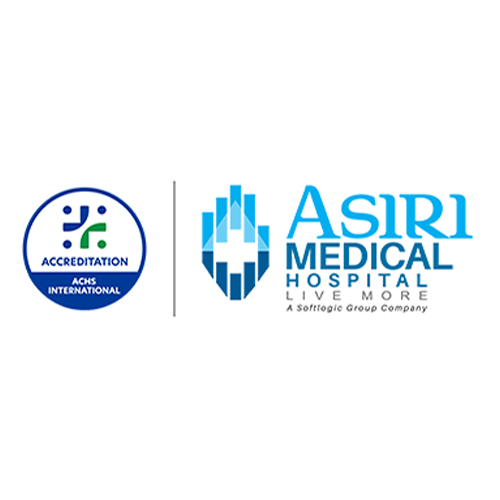October 9, 2024
Ovulation Disorders: A Common Cause of Infertility
Infertility is a challenge faced by millions of couples worldwide, and one of the most common causes of female infertility is ovulation disorders. Ovulation is a critical part of the reproductive process, and when something disrupts this function, it can make conceiving difficult or even impossible. We’ll explore what ovulation disorders are, how they affect fertility, and how specialised care from Asiri Nova IVF & Fertility Centre can provide support and solutions for couples struggling with these issues.
What is Ovulation?
Ovulation is the process where a mature egg is released from the ovary, ready for fertilisation. It typically occurs once a month during a woman’s menstrual cycle. For a woman to conceive, a sperm must fertilise this egg shortly after its release. This makes ovulation a vital step in reproduction. A regular and well-functioning ovulation cycle increases the chances of pregnancy.
However, when ovulation is irregular or doesn’t occur at all, it can significantly hinder the ability to conceive. Ovulation disorders are, therefore, a major concern for women facing fertility issues.
What are Ovulation Disorders?
Ovulation disorders refer to any condition that affects the regularity or function of ovulation. In many cases, the ovaries either fail to release an egg or release an egg irregularly. Some women may ovulate only occasionally, while others may not ovulate at all. Ovulation disorders can result from various underlying conditions and hormonal imbalances.
Some common types of ovulation disorders include:
Polycystic Ovary Syndrome (PCOS): A hormonal imbalance that affects ovulation by causing irregular periods, cysts on the ovaries, and elevated levels of androgens (male hormones).
- Hypothalamic Amenorrhea: A condition caused by disruptions in the signals sent from the brain to the ovaries, which can prevent ovulation from occurring.
- Premature Ovarian Insufficiency (POI): Also known as early menopause, this condition occurs when the ovaries stop functioning properly before the age of 40.
- Hyperprolactinaemia: A condition where the body produces too much prolactin, a hormone that affects ovulation by suppressing ovulation-stimulating hormones.
Each of these disorders can make it difficult for a woman to conceive naturally, as they interfere with the regular release of eggs required for fertilisation.
Signs and Symptoms of Ovulation Disorders
One of the first signs of an ovulation disorder is irregular periods. Women with an ovulation disorder may experience cycles that are too long, too short, or even absent. However, other symptoms may vary depending on the type of disorder a woman is dealing with.
Common signs include:
Irregular menstrual cycles
- Absence of menstruation (amenorrhea)
- Heavy or very light menstrual bleeding
- Acne or excessive facial/body hair (due to high levels of androgens)
- Unexplained weight gain or difficulty losing weight
- Fatigue or lethargy
If a woman is experiencing any of these symptoms and struggling to conceive, it may be an indication of an ovulation disorder.
Causes of Ovulation Disorders
Ovulation disorders can arise from several causes, including lifestyle factors, underlying health conditions, or hormonal imbalances. Below are some common causes of ovulation problems:
Hormonal Imbalances: Hormones play a key role in regulating the menstrual cycle. Any disruption in the balance of hormones such as oestrogen, progesterone, and luteinising hormone can lead to ovulation disorders.
- Weight Issues: Both underweight and overweight women may experience ovulation issues. Low body weight can disrupt hormone production, leading to hypothalamic amenorrhea, while obesity can contribute to PCOS and other hormonal problems.
- Excessive Exercise: Intense physical activity, particularly in athletes, can interfere with the body’s ability to ovulate by affecting hormone levels.
- Stress: High levels of stress can have a direct impact on the hypothalamus, the part of the brain responsible for regulating reproductive hormones. This can delay or prevent ovulation.
- Age: As women age, their fertility naturally declines, and ovulation disorders become more common as the quantity and quality of eggs diminish.
How Ovulation Disorders Affect Fertility
Since ovulation is essential for conception, any disorder that disrupts this process can make it more challenging for a couple to conceive. Without the release of a mature egg, fertilisation cannot take place. Even when ovulation occurs irregularly, it can be difficult for couples to time intercourse to coincide with the release of an egg.
Ovulation disorders are responsible for up to 25% of cases of female infertility, making it one of the leading causes of reproductive challenges.
Diagnosis and Treatment of Ovulation Disorders
If a woman suspects she has an ovulation disorder, seeking a diagnosis from a healthcare professional is crucial. At Asiri Nova IVF & Fertility Centre, experienced fertility specialists can provide a comprehensive evaluation to determine the exact cause of the issue.
- Diagnosis typically involves:
- Blood Tests: To measure hormone levels and identify any imbalances affecting ovulation.
- Ultrasound: To check for structural problems in the ovaries, such as cysts or other abnormalities.
- Ovulation Tests: To monitor whether ovulation is occurring regularly.
Once a diagnosis is made, treatment options can be tailored to each individual’s unique needs.
Treatment Options for Ovulation Disorders
Treating ovulation disorders often involves a combination of lifestyle changes, medication, and sometimes assisted reproductive techniques like IVF (In Vitro Fertilisation). The approach depends on the underlying cause of the disorder.
Lifestyle Changes: For women whose ovulation issues are linked to weight, stress, or exercise, making adjustments to lifestyle habits can help regulate the menstrual cycle. Maintaining a healthy weight, reducing stress, and moderating physical activity can all improve fertility.
- Medications: There are several medications designed to stimulate ovulation. These include:
- Clomiphene Citrate (Clomid): A common medication that encourages the release of an egg by stimulating the ovaries.
- Letrozole: Another medication used to induce ovulation, particularly in women with PCOS.
- Metformin: Often used to treat women with PCOS, metformin can improve insulin resistance and restore normal ovulation.
- Assisted Reproductive Technologies (ART): For women who do not respond to ART options such as IVF can provide a solution. In IVF the ovaries are stimulated with hormonal injections in order to get the ovaries to respond. The eggs are then collected and fertilised with sperm in a laboratory, and the resulting embryos are transferred into the uterus.
Why Choose Asiri Nova IVF & Fertility Centre?
At Asiri Nova IVF & Fertility Centre, we understand the emotional and physical challenges that come with infertility. Our expert team is dedicated to helping couples achieve their dream of parenthood through personalised care and cutting-edge treatments. We offer comprehensive fertility services, including:
Expert consultations: Our fertility specialists provide in-depth assessments to create tailored treatment plans.
- Advanced diagnostic tools: We use state-of-the-art technology to diagnose ovulation disorders and other fertility issues.
- Personalised treatment: We provide a range of treatments, from ovulation induction to IVF, ensuring the best chance of success for each individual.
Ovulation disorders are a common cause of infertility, but they do not have to be a permanent barrier to parenthood. By understanding the nature of these disorders and seeking expert help, many women can overcome their reproductive challenges. At Asiri Nova IVF & Fertility Centre, we are committed to providing compassionate and effective care to help couples navigate their fertility journey with confidence.
If you or a loved one are experiencing difficulties conceiving, don’t hesitate to contact Asiri Nova IVF & Fertility Centre today for a consultation and take the first step towards realising your dream of becoming a parent.
